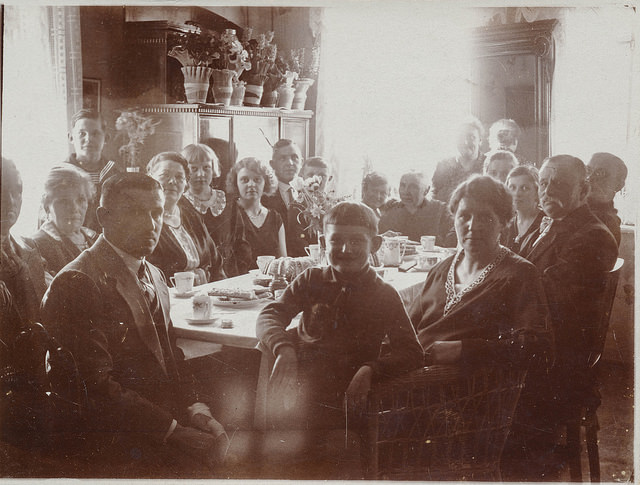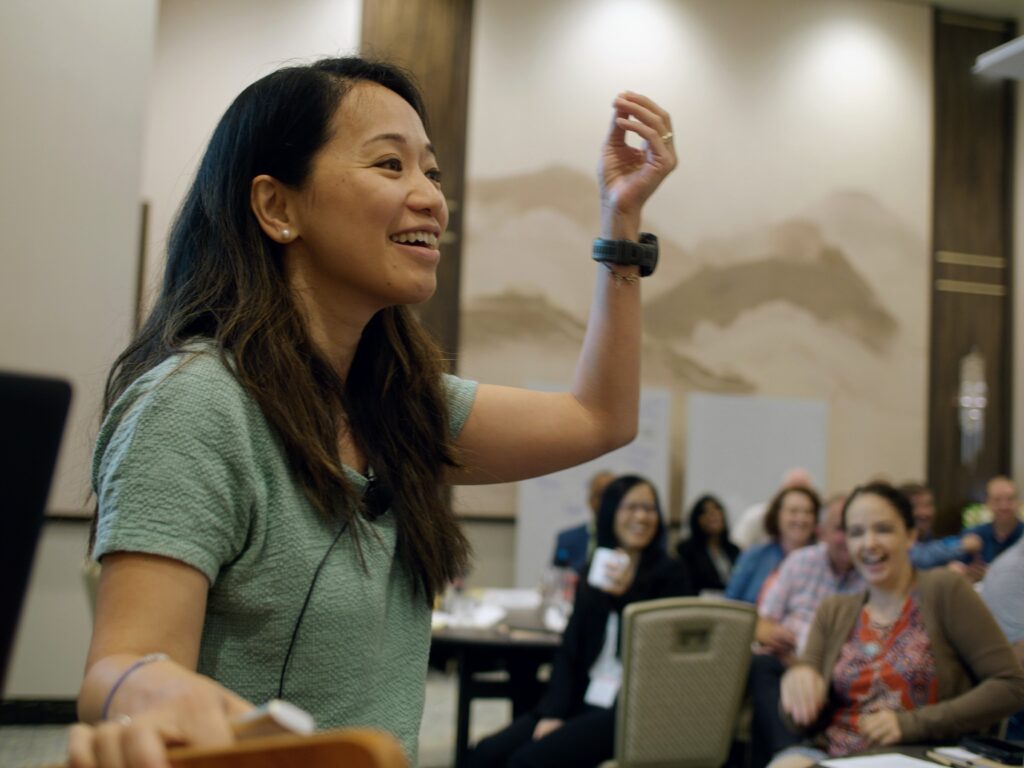December 7, 2015 / Esther Choy

May 7, 2015 – A personal notebook entry reads, “Tonight the girls are trying to go to sleep with Dad keeping them company in the rocking chair. All of a sudden Alina (my six-year-old) sits up on her bed and begins a dramatic episode of ‘I’m-too-scared-to-sleep.’
Then, Melia (my three-year-old) lifts herself halfway up and tries to comfort her older sister. She says, ‘If you wake up in the middle of the night and you are scared and you wake me up, it’s okay if you go to Mom and Dad’s bed, I will be okay here by myself.’ What a brave thing to say for a barely three-year-old child!”
I read this notebook entry over and over again. Stunned. I am stunned not because I am so impressed with the thoughtfulness of my youngest child. I am stunned because while the image of that evening’s brief moment seems crystal clear after I read the entry, I wouldn’t have remembered this moment had I not written it down and thus given myself the opportunity to relive it.
Only a few months have passed, but this moment— that does this mother proud— could’ve been gone forever. It turns out, we forget a lot. The famed psychologist and winner of the 2002 Nobel Prize in economics, Daniel Kahneman, once told his TED audience that, “What happens to these moments? And the answer is really straightforward: They are lost forever… the psychological present is said to be about three seconds long; that means that, you know, in a life there are about 600 million of them; in a month, there are about 600,000 — most of them don’t leave a trace.” So, we forget – a lot, you might say.
What’s the big deal? In a family context, the family memories that get preserved mean a great deal, especially for the next generation. Children who have the most confidence have a sense of “intergenerational self,” reports Sarah Williamson in her New York Times article, The Stories That Bind Us. “They know they belong to something bigger than themselves.”
However, it is not only self-confidence that family memories build and bolster; it is also resilience. Children who grew up hearing family stories could moderate the effects of stress more easily, says Williamson. And this benefit is not just for families. The same advantages, she notes, extend to “successful human enterprises of any kind, from companies to countries.”
Like families, other institutions can also be intentional about capturing their core identity and passing it on to future generations. So how do we make sure our family memories or our institution’s experiences stick with us?
“In order to hold onto our experience, we need to make meaning out of it,” says psychology professor Jonathan Adler in The Atlantic in an article called “Life’s Stories.” “The way we do that is by structuring our lives into stories.” Unless we turn our experiences into stories, he’s saying, we lose them forever.
Indeed, the author of the “Life’s Stories” article, Julie Beck, says, “In telling the story of how you became who you are, and of who you’re on your way to becoming, the story itself becomes a part of who you are.”
What do young children like mine do when they are not even at the development stage where they will remember much of their childhood, let alone making meaning?
To me, that is the job of a parent, in essence. Parents can outsource childcare responsibilities to trustworthy caretakers through carefully laid out parameters. But, parents cannot outsource the responsibility of instilling value, molding identity, and shaping personalities. They cannot outsource collecting family memories.
Sign up for our monthly newsletter, packed with information on free events, tips and coaching sessions.
Inevitably, my two daughters get into fierce fights, like any siblings do, and at times they declare that each other’s name is forever “crossed off my list.” When their nerves calm eventually, I tell them stories about themselves, opportunistically, like that one evening on May 7, when Melia was so thoughtful and protective of her older sister that she was willing to subject herself to the horror of staying in her room by herself (a frightful thing apparently) if it meant her sister gets comfort and reassurance. “How you love your sister, Melia!” I would say, concluding the story with what it meant to me.
Does that story mean the same thing to Melia? I will probably never know, and that is not relevant. What is relevant is that I am turning her experience into a story that is shaping her identity, her relationship with her sister, and her future. In fact, according to Kahneman, we have two selves: The Experiencing Self, and the Remembering Self. The Remembering Self is the storyteller.
“We don’t only tell stories when we set out to tell stories. Our memory tells us stories; that is, what we get to keep from our experiences is a story.” Whether you consider yourself a storyteller, whether you plan to tell stories, you already tell stories ALL THE TIME. The only sensible question is, “How do I take full advantage of this very essence of being human so I better myself, my family and my community?”
The answer comes, at least in part, with the ways we capture and tell stories while not imposing a huge demand on our often over-stretched schedules and responsibilities.
Speaking of short on time, I know this blog is longer than my typical ones and I have already taken more of your time than I normally do. So I will wait until my next post to share my timesaving, fun-infusing ways to exert one of the greatest influences we—parents and leaders of our household— have over the next generation. In the meantime, tell me… how do you capture your family stories?
Related Articles
Collecting Family Stories You Hear
Feeling Stressed? Try Reminiscing
Photo credit: Simpleinsomonia via creativecommons.org
Better Every Story
Leadership Transformation through Storytelling
"This is an amazing and insightful post! I hadn’t thought of that so you broadened my perspective. I always appreciate your insight!" - Dan B.
Get Esther Choy’s insights, best practices and examples of great storytelling to your inbox each month.


